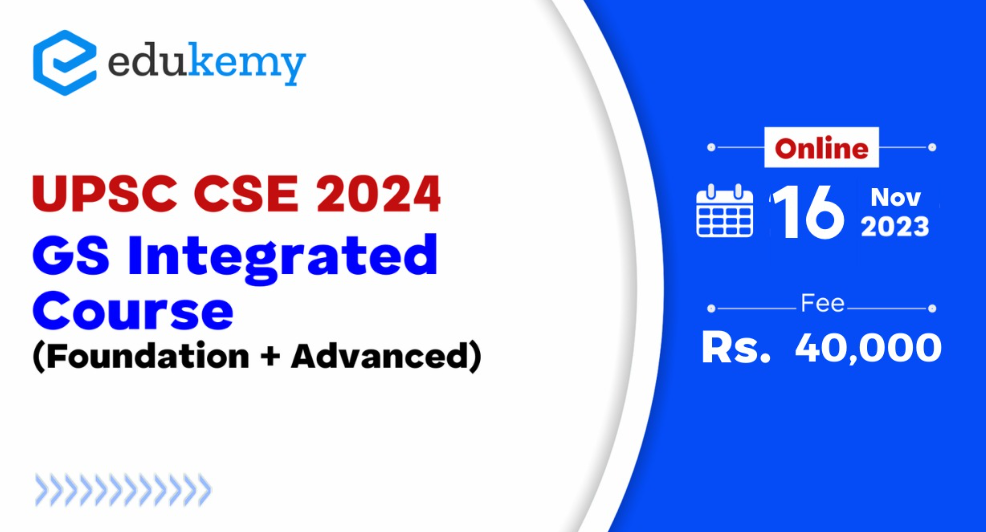
Preparing for the Union Public Service Commission (UPSC) Civil Services Examination (CSE) is a journey that demands meticulous planning and a well-structured booklist. Aspirants often find themselves inundated with a vast array of study materials, making it essential to curate a booklist that aligns with their goals and covers the UPSC syllabus comprehensively. In this article, we will explore the art of creating the ideal booklist for UPSC preparation.
Contents
- 1 5 Top Listed Books
- 2 5. Paper – V General Studies IV
- 3 FAQs on UPSC Booklist
- 3.1 1. How do I create an effective booklist for UPSC preparation?
- 3.2 2. Is it necessary to stick to a recommended booklist, or can I use additional resources?
- 3.3 3. Should I revise the same books multiple times or explore new ones during preparation?
- 3.4 4. How can I adapt my booklist to suit my strengths and weaknesses?
- 3.5 5. Is it okay to rely solely on online resources and notes instead of physical books?
- 4 In case you still have your doubts, contact us on 9811333901.
5 Top Listed Books
Preliminary Examination
1. Paper – I General Studies (GS)
- “Indian Polity” by M. Laxmikanth: This book is considered the go-to resource for Indian Polity preparation. It covers the Constitution, governance, and related topics in a clear and structured manner. (AMAZON LINK)
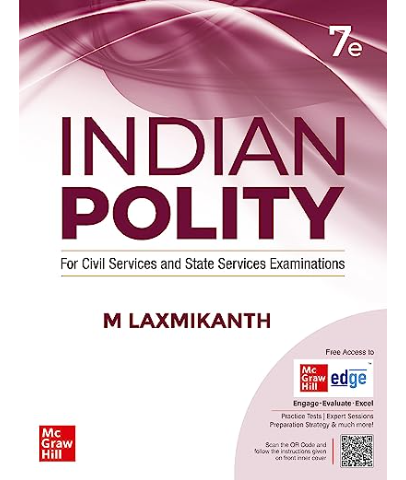
- “Indian Economy” by Ramesh Singh: For economics, Ramesh Singh’s book is highly regarded. It delves into various aspects of the Indian economy, including concepts, policies, and current economic issues. (AMAZON LINK)
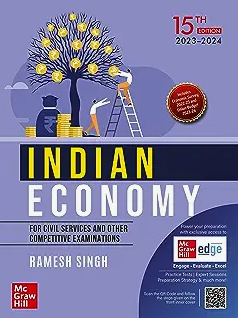
- “Certificate Physical and Human Geography” by Goh Cheng Leong: Geography is a significant portion of the Prelims syllabus, and this book provides a thorough understanding of both physical and human geography topics. (AMAZON LINK)
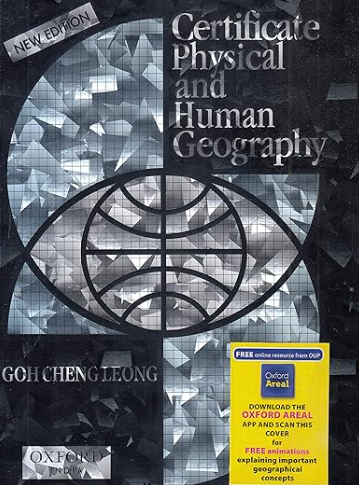
- “General Studies Paper-I for Civil Services Preliminary Examination” by Pearson: This comprehensive guide covers various topics in the Prelims syllabus, including history, geography, economics, and more. It’s a one-stop resource for Prelims preparation. (AMAZON LINK)
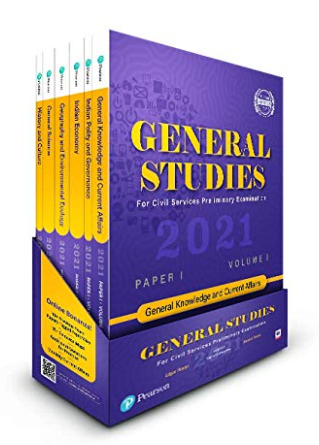
- “Manorama Yearbook” or “India Year Book” (Publication by the Government of India): These annual publications are excellent sources of current affairs and general knowledge. They provide valuable insights into various government schemes, initiatives, and statistical data. (AMAZON LINK)
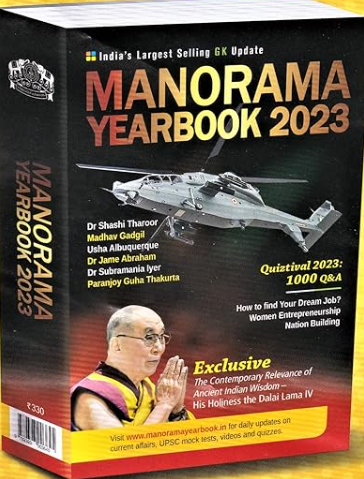
2. Paper – II Civil Services Aptitude Test (CSAT)
- “CSAT Paper-II (IAS Prelims) 101 Speed Tests Practice Workbook” by Disha Experts: This book is specifically designed for CSAT and contains a variety of practice questions to help candidates improve their aptitude and comprehension skills. (AMAZON LINK)
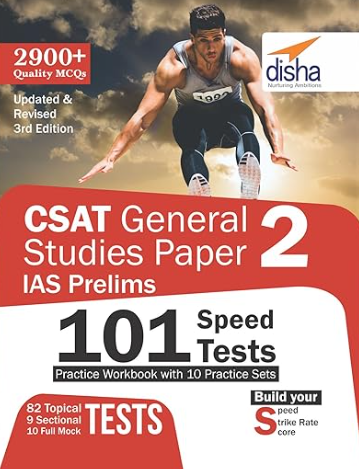
- “Analytical Reasoning” by M.K. Pandey: This book is excellent for improving your logical and analytical reasoning skills, which are important for CSAT. It contains a wide range of practice questions and exercises. (AMAZON LINK)
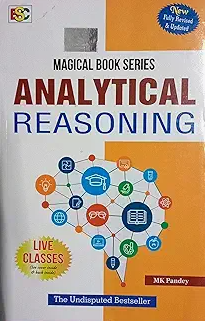
- “Verbal & Non-Verbal Reasoning” by R.S. Aggarwal: This book is known for its comprehensive coverage of reasoning topics. It’s particularly useful for the logical reasoning section of CSAT. (AMAZON LINK)
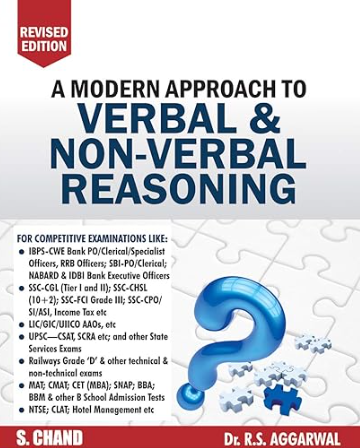
- “CSAT General Studies Paper II Manual” by Arihant Experts: This book provides a good overview of the topics and concepts typically tested in CSAT. It includes practice questions, previous years’ papers, and tips for time management. (AMAZON LINK)
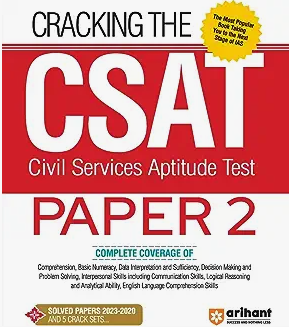
- “Quantitative Aptitude for Competitive Examinations” by R.S. Aggarwal: While this book is primarily designed for quantitative aptitude, it can be useful for the mathematics section of CSAT. It covers various mathematical concepts and includes a wide range of practice questions. (AMAZON LINK)
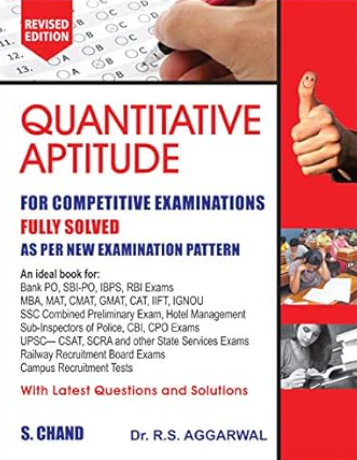
Mains Examination
1. Paper – I Essay
- “Essays for Civil Services and Other Competitive Examinations” by Pulkit Khare: This book is specifically tailored for UPSC aspirants and covers a wide range of topics, making it an ideal resource for essay preparation. (AMAZON LINK)
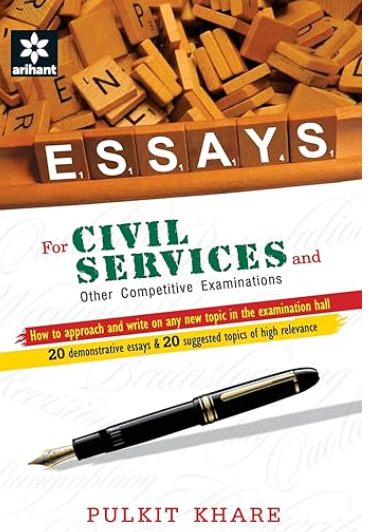
- “151 Essays” by S.C. Gupta: This book provides a comprehensive collection of essays on diverse topics, helping you develop a broader perspective and improve your essay writing skills. (AMAZON LINK)
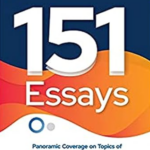
- “An Essay Book for IAS Mains Exam” by Disha Experts: This book offers a curated selection of essays covering contemporary and relevant issues. It also provides insights into essay writing techniques and strategies. (AMAZON LINK)
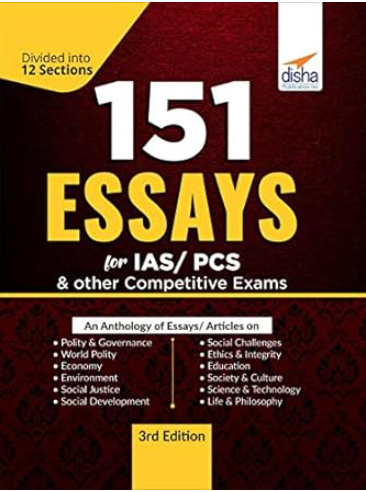
- “Essay Writing for Civil Services” by S. R. Bhatt and S. Adnani: This book focuses on enhancing your essay writing skills with tips, guidelines, and examples. It provides valuable guidance on structuring essays effectively. (AMAZON LINK)
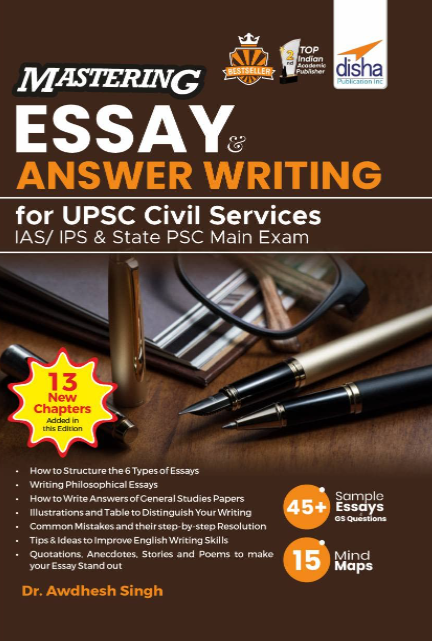
2. Paper – II General Studies I
- “Indian Art and Culture” by Nitin Singhania: This book provides comprehensive coverage of Indian culture, art, and heritage, which is an essential part of GS1. It is considered one of the best resources for this topic. (AMAZON LINK)
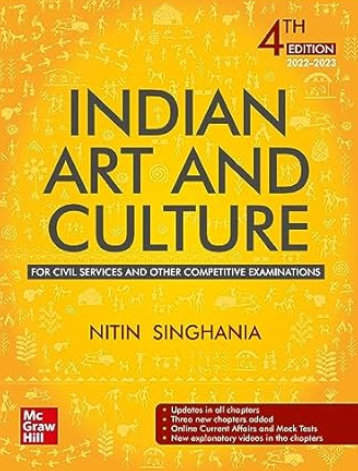
- “India’s Struggle for Independence” by Bipan Chandra: For history, this book offers an in-depth understanding of India’s freedom struggle and its historical context. It covers important events, leaders, and movements. (AMAZON LINK)
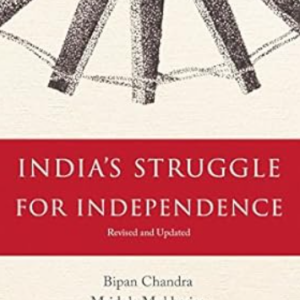
- “Geography of India” by Majid Husain: This book is an excellent resource for the geography portion of GS1. It covers physical, economic, and human geography topics related to India. (AMAZON LINK)
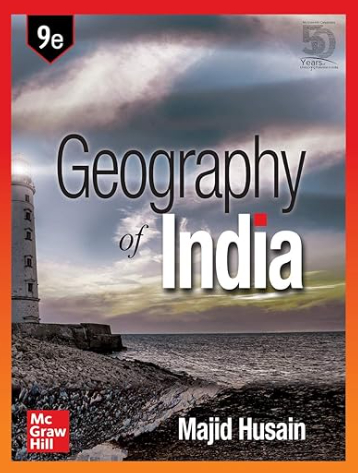
- “NCERT Books (Class 6 to 12): NCERT textbooks are indispensable for building a strong foundation in subjects like history, geography, and society. They provide a solid base for more advanced study. (AMAZON LINK)
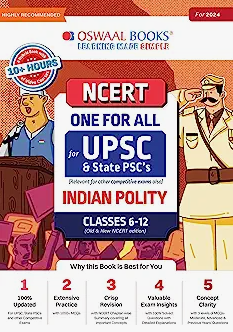
3. Paper – III General Studies II
- “Indian Polity” by M. Laxmikanth: This book is considered the gold standard for Indian Polity preparation. It covers the Constitution, governance, and related topics in a clear and structured manner. It is an essential resource for GS2. (AMAZON LINK)
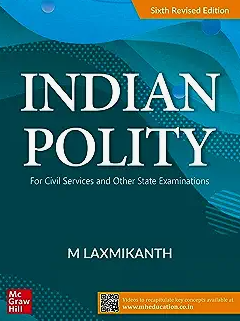
- “Introduction to the Constitution of India” by D.D. Basu: This book provides an in-depth analysis of the Indian Constitution. It covers various aspects of constitutional law and governance, making it a valuable reference for UPSC aspirants. (AMAZON LINK)
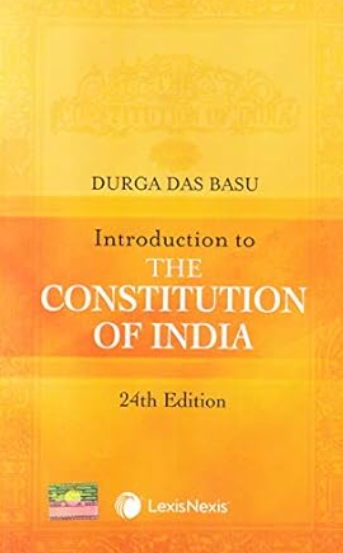
- “India’s Foreign Policy” by Muchkund Dubey: For international relations, this book offers insights into India’s foreign policy, its historical context, and its contemporary challenges and opportunities in the global arena. (AMAZON LINK)
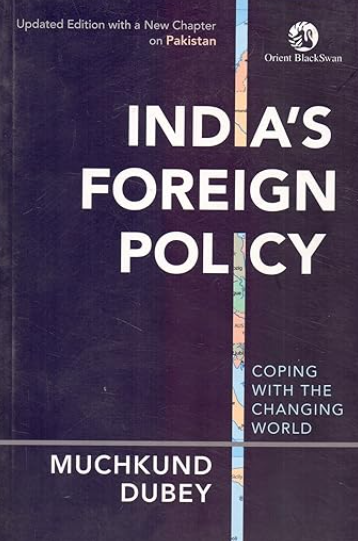
- “Social Justice and the Constitution of India” by A.G. Noorani: This book delves into the concept of social justice as enshrined in the Indian Constitution. It covers issues related to social, economic, and political rights and justice. (AMAZON LINK)
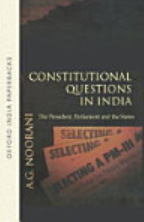
4. Paper – IV General Studies III
- “Indian Economy” by Ramesh Singh: This book provides a comprehensive understanding of various aspects of the Indian economy, including economic concepts, policies, and current economic issues. It’s a valuable resource for the economics portion of GS3. (AMAZON LINK)
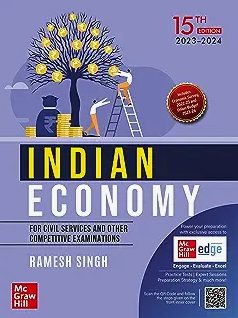
- “Environment for Civil Services Prelims and Mains” by Khuller: This book covers environmental issues, conservation efforts, and policies. It’s particularly useful for the environment and ecology section of GS3. (AMAZON LINK)
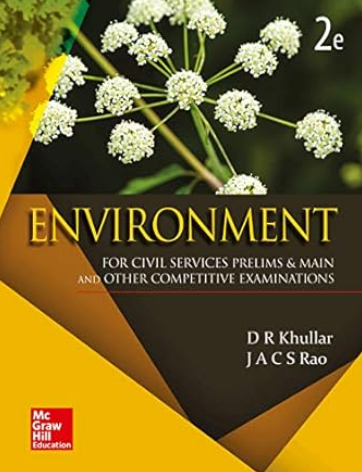
- “Science and Technology in India” by Kalpana Rajaram: This book provides insights into the developments in science and technology in India. It covers the role of science and technology in various sectors and can be a useful reference for GS3. (AMAZON LINK)
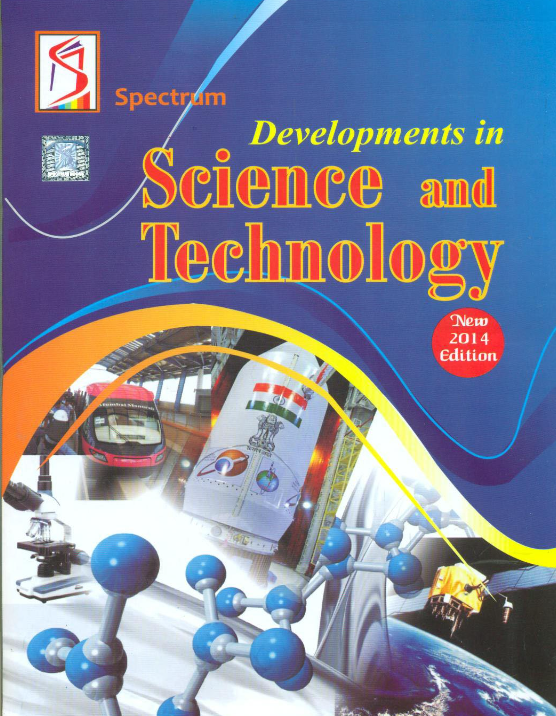
- “Internal Security and Disaster Management” by Ashok Kumar: For topics related to internal security, disaster management, and security challenges, this book offers a comprehensive overview. It’s an essential resource for the internal security portion of GS3. (AMAZON LINK)
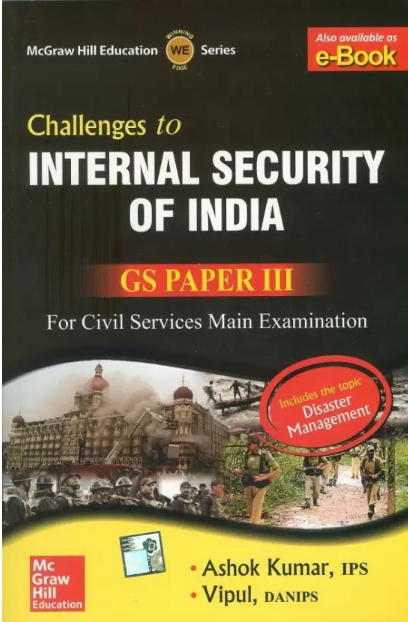
5. Paper – V General Studies IV
- “Lexicon for Ethics, Integrity & Aptitude” by Chronicle Publications: This book is highly recommended for its comprehensive coverage of ethical concepts, definitions, and case studies. It’s specifically designed for UPSC aspirants preparing for GS4. (AMAZON LINK)
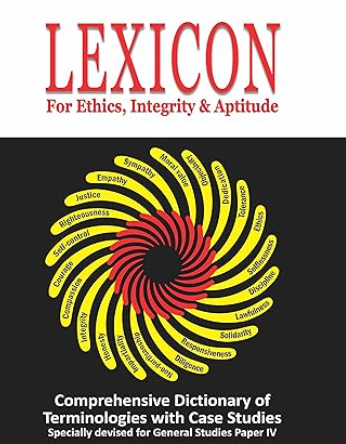
- “Ethics, Integrity, and Aptitude for Civil Services Examination” by G. Subba Rao and P.N. Roy Chowdhury: This book provides a detailed analysis of ethical theories, values, and dilemmas. It also includes case studies and practice questions to reinforce your understanding. (AMAZON LINK)
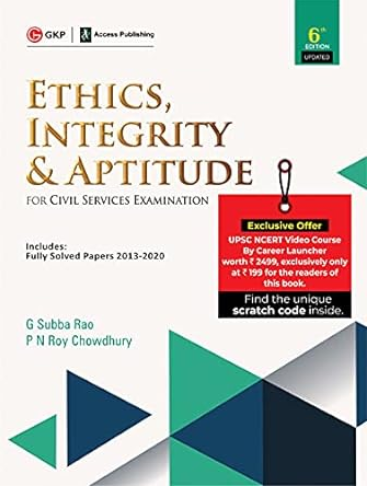
- “Administrative Thinkers” by Prasad and Prasad: Understanding the philosophies and ideas of influential administrative thinkers is crucial for GS4. This book covers the key contributions of various thinkers to public administration. (AMAZON LINK)
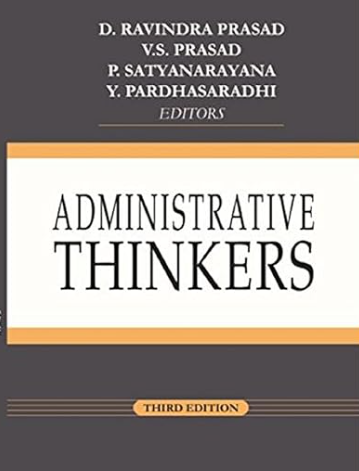
- “Challenges to Internal Security of India” by Ashok Kumar: For the internal security aspect of GS4, this book offers insights into security challenges and issues in India. It’s a valuable resource for understanding the ethical dimensions of security and governance. (AMAZON LINK)
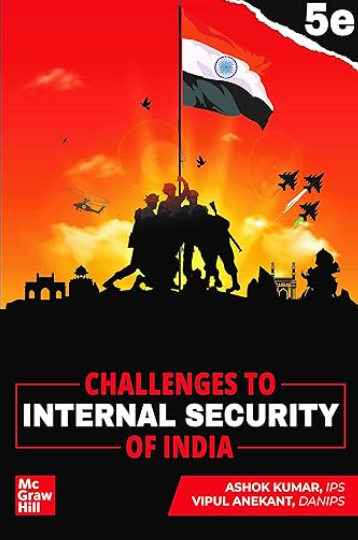
6. Paper – VI Optional Subjects
- History:
- “India’s Struggle for Independence” by Bipan Chandra (AMAZON LINK)
- “Modern India” by Bipan Chandra (AMAZON LINK)
- “Medieval India” by Satish Chandra (AMAZON LINK)
- “Ancient India” by R.S. Sharma (AMAZON LINK)
- Geography:
- “Certificate Physical and Human Geography” by Goh Cheng Leong (AMAZON LINK)
- “Geography of India” by Majid Husain (AMAZON LINK)
- “Physical Geography” by Savindra Singh (AMAZON LINK)
- Public Administration:
- “Public Administration” by M. Laxmikanth (AMAZON LINK)
- “Administrative Thinkers” by Prasad and Prasad (AMAZON LINK)
- “Indian Administration” by Rajni Goyal and Ramesh Arora (AMAZON LINK)
- Political Science and International Relations:
- “Political Theory” by O.P. Gauba (AMAZON LINK)
- “An Introduction to the Constitution of India” by D.D. Basu (AMAZON LINK)
- “India’s Foreign Policy” by Muchkund Dubey (AMAZON LINK)
- “International Relations” by Pushpesh Pant (AMAZON LINK)
- Economics:
- “Indian Economy” by Ramesh Singh (AMAZON LINK)
- “Economic Survey” by the Government of India (WEBSITE LINK)
- “Indian Economy” by Uma Kapila (AMAZON LINK)
- Sociology:
- “Sociology” by Haralambos and Holborn (AMAZON LINK)
- “Sociology: Themes and Perspectives” by Michael Haralambos (AMAZON LINK)
- “Indian Society” by Ram Ahuja (AMAZON LINK)
- Anthropology:
- “Physical Anthropology” by P. Nath (AMAZON LINK)
- “Cultural Anthropology” by N. K. Vaid (AMAZON LINK)
- “Anthropology: An Introduction” by Ember and Ember (AMAZON LINK)
- Psychology:
- “Psychology” by Robert A. Baron (AMAZON LINK)
- “Psychology” by Ciccarelli and White (AMAZON LINK)
- Philosophy:
- “A Critical History of Western Philosophy” by Y. Masih (AMAZON LINK)
- “An Introduction to Indian Philosophy” by S. Radhakrishnan (AMAZON LINK)
- Literature (English Literature, Hindi Literature, etc.)
FAQs on UPSC Booklist
1. How do I create an effective booklist for UPSC preparation?
Creating an effective booklist involves understanding the UPSC syllabus, identifying key topics, and selecting books and resources that cover those topics comprehensively. It’s also important to seek recommendations from mentors and experts.
2. Is it necessary to stick to a recommended booklist, or can I use additional resources?
While recommended books provide a strong foundation, it’s perfectly acceptable to supplement your preparation with additional resources like newspapers, magazines, online courses, and video lectures. The key is to ensure that you cover the entire syllabus thoroughly.
3. Should I revise the same books multiple times or explore new ones during preparation?
Revision is essential for UPSC preparation. It’s advisable to revise the same books multiple times to reinforce your understanding. However, you can explore new resources if you feel the need for more in-depth knowledge on specific topics or if you’re struggling with a particular subject.
4. How can I adapt my booklist to suit my strengths and weaknesses?
Adapting your booklist involves recognizing your strengths and weaknesses in different subjects. Allocate more time and resources to subjects you find challenging while maintaining a balance with your strengths. Consult with mentors to customize your booklist accordingly.
5. Is it okay to rely solely on online resources and notes instead of physical books?
Online resources and notes can be valuable additions to your preparation. However, having physical books for reference can be helpful for in-depth study and note-taking. It’s often beneficial to strike a balance between online and offline resources based on your preferences and needs.
In case you still have your doubts, contact us on 9811333901.
For UPSC Prelims Resources, Click here
For Daily Updates and Study Material:
Join our Telegram Channel – Edukemy for IAS
- 1. Learn through Videos – here
- 2. Be Exam Ready by Practicing Daily MCQs – here
- 3. Daily Newsletter – Get all your Current Affairs Covered – here
- 4. Mains Answer Writing Practice – here

